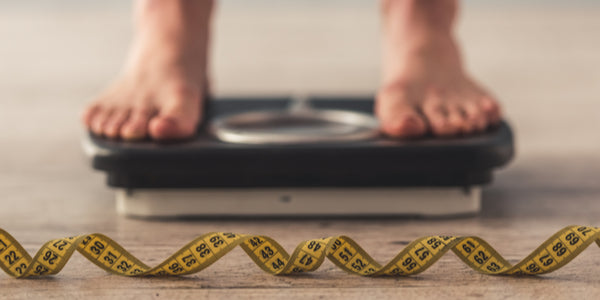
What is Hashimoto’s disease? Hashimoto's disease symptoms start with the thyroid but can wreak havoc on other parts of the body as well. As with many other autoimmune diseases, Hashimoto’s disease treatment starts with important lifestyle changes like diet.
Read on for tips on creating a Hashimoto’s disease diet and more!
What Is Hashimoto’s Disease?
Hashimoto’s disease, technically called Hashimoto thyroiditis, is an autoimmune disease. With this condition, an individual’s own immune system attacks their thyroid gland. Essentially, the thyroid becomes damaged.
In developed countries, Hashimoto’s disease is the most common cause of hypothyroidism. Hypothyroidism is a term describing underactive thyroid activity. In other words, the thyroid does not produce adequate hormones and the body can get out of balance.
From research on the disease, and like many other autoimmune conditions, women are affected more often (by a ratio of around 10:1). Many women are diagnosed around the age of 50, but some are diagnosed as early as their 20s or 30s.
Hashimoto’s Disease Symptoms
While diagnosis of Hashimoto’s disease can be complicated and take some time, there are a couple of signs and symptoms typical of the disease. Common symptoms include:
• Changes in weight, particularly weight gain
• Constipation
• Decreased heart rate
• Dry skin
• Fatigue
• Fertility problems
• Intolerance of temperature change (i.e. trouble tolerating the cold)
• Irregular menstrual patterns
• Pain, especially around joints and muscles
• Thinning hair
During a physical exam, if your doctor suspects a thyroid condition, they may examine your neck to see if the thyroid is larger. From the outside, the neck may appear swollen or you may even have a goiter (enlarged thyroid). This can cause a feeling of fullness in your throat area but is not typically painful.
In addition, lab blood tests will often reveal:
• Elevated thyroid-stimulating hormone (TSH) levels
• Decreased levels of free thyroxine (fT4)
• Elevated antithyroid peroxidase (TPO) antibodies
However, in the early stages of Hashimoto’s disease, thyroid hormone levels results may be normal and even look like hyperthyroidism. It’s important to seek the help of a health specialist to determine whether these are signs of Hashimoto’s disease or not.
Hashimoto Disease Treatment
Medication is often prescribed, with levothyroxine being the most common treatment. It works by helping to convert the conversion of the thyroid hormone thyroxine (T4) to T3, the body’s active form of thyroid hormone. Levothyroxine is identical in structure to T4.
Additionally, stress relief is crucial to disease treatment. Stressors can affect everything from digestion to immunity, including thyroid production. Successfully managing stress can promote better thyroid balance.
Diet for Hashimoto’s Disease
Food is also an important factor in Hashimoto’s disease treatment. The thyroid typically uses iodine (a mineral found in some foods) to help create hormones but in the case of Hashimoto’s, iodine metabolism can be dysfunctional.
Iodine is a mineral, a trace mineral to be exact. This means that the body doesn’t make it but needs this mineral (from food or supplements) in small amounts each day. it’s important to keep an eye on iodine levels in your food, and high levels of iodine are found in foods such as the following:
• Beef liver
• Chicken
• Dulse
• Eggs
• Fish or shellfish (i.e. cod, tuna, oysters, shrimp)
• Fortified infant formula
• Iodized salts (i.e. common table salts)
• Kelp
• Seaweed (i.e. nori, kelp, kombu, wakame)
Other than being aware of iodine levels in the diet, the following diet advice is usually recommended:
• Ensure you are getting essential nutrients to help reverse symptoms
• Support gut health to help steady immune system
• Optimize your diet with a variety of nutrient-rich foods
• Working with a doctor and dietitian to manage iodine intake during pregnancy
Supplements and Hashimoto’s Disease
Supplementation, a potentially important part of a whole and complete diet, should be approached with caution. Excessive supplementation may cause adverse effects, such as arrhythmias or osteoporosis.
As mentioned above, it is important to be aware of iodine levels, especially if you are taking high-dose iodine supplements. Be sure to examine ingredient lists for seaweeds or salts that may contain iodine.
Going Gluten- or Grain-Free
There is some evidence that suggests those with Hashimoto’s disease may be more likely to also have celiac disease. If you suspect a gluten or grain sensitivity, you may want to be screened for celiac disease.
In the case of sensitivity, reducing gluten and grains in the diet may help to:
• Reduce thyroid antibody levels
• Improve thyroid function
• Improve vitamin D levels
Suspect a gluten sensitivity? Work with a dietitian to find out which of the following foods may worsen your symptoms:
• Barley
• Breads
• Pastas
• Rye
• Sauces (i.e. soy sauce)
• Wheat
The Autoimmune Protocol (AIP) diet is a popular diet plan. It removes potentially inflammatory or harmful foods, including:
• Added or refined sugars
• Alcohol
• Dairy
• Eggs
• Food additives
• Grains
• Legumes
• Nightshades
• Nuts and seeds
• Oils
The Bottom Line On Healing With Hashimoto’s
From symptoms of hypothyroidism to lab tests, being diagnosed with Hashimoto’s disease can be a complex process. Luckily, some simple diet tips and treatment options can help you successfully manage your Hashimoto’s.
Like any other disease, a good support system and treatment protocol can promote powerful healing.
References:
Hashimoto’s Disease. NIDDK. https://www.niddk.nih.gov/health-information/endocrine-diseases/hashimotos-disease.
Iodine. Harvard T.H. Chan. https://www.hsph.harvard.edu/nutritionsource/iodine/.
Kubala J. Hashimoto Diet: Overview, Foods, Supplements, and Tips. Healthline.com. Published March 2022.
Mincer DL, Jialal I. Hashimoto Thyroiditis. 2021 Sep 28. StatPearls. Treasure Island (FL): StatPearls Publishing; 2022 Jan–. PMID: 29083758.
Myers A. 5 Steps to Take Back Your Health if You Have Hashimoto’s. Amy Myers RD. Published May 2022. https://www.amymyersmd.com/article/restore-health-hashimotos/.







